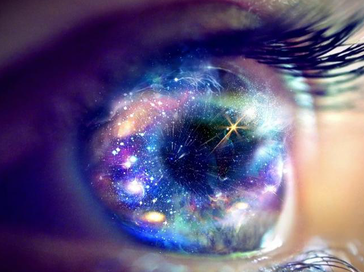The Indigos: Children And Adults.

Why Do We Need Vibrational Retuning?
August 10, 2018
Are You Looking For Your Twin Flame?
August 10, 2018One of the most popular misconceptions regarding the Indigos is where the name "indigo" come from. Many believe that it is the color of their auras, which is not true, it is an indication of consciousness. The name was introduced by Nancy Ann Tappe who has a disorder called synesthesia, it disturbs the way the brain perceives everyday things. Due to this condition she can see personalities in colors and taste form. About 30 years ago she started to notice that many children had a new type of "indigo" personality.
Another misconception is that we normally think about the Indigos as children. Still if they started showing up on our planet 30 years ago many of them are adults today. Not only your children can possess Indigo consciousness, but it can be you, your spouse or other friends or family members.
Another misconception is that we normally think about the Indigos as children. Still if they started showing up on our planet 30 years ago many of them are adults today. Not only your children can possess Indigo consciousness, but it can be you, your spouse or other friends or family members.

So who are the Indigos? They are Star travelers who come to Earth from a Star system called Nihal with a very specific purpose: promoting consciousness from within the human experience. Based on what I learn from my Indigo clients Nihal souls here always been here, but they were relatively rare. The situation changed right after the WWII when we as humanity needed lots of help. This made Nihal souls volunteer to come back, and since then we had them here in three big waves.
Below are some characteristics of the Indigo children presented by Lee Carroll and Jan Tober which can also be applied to the Indigo adults:
Below are some characteristics of the Indigo children presented by Lee Carroll and Jan Tober which can also be applied to the Indigo adults:
- They come into the world with a feeling of royalty (and often act like it)
- They have a feeling of "deserving to be here," and are surprised when others don't share that.
- Self-worth is not a big issue. They often tell the parents "who they are."
- They have difficulty with absolute authority (authority without explanation or choice).
- They simply will not do certain things; for example, waiting in line is difficult for them.
- They get frustrated with systems that are ritually oriented and don't require creative thought.
- They often see better ways of doing things, both at home and in school, which makes them seem like "system busters".
- They seem antisocial unless they are with their own kind. If there are no others of like consciousness around them, they often turn inward, feeling like no other human understands them. School is often extremely difficult for them socially.
- They will not respond to "guilt" discipline.
- They are not shy in letting you know what they need.
- They have a feeling of "deserving to be here," and are surprised when others don't share that.
- Self-worth is not a big issue. They often tell the parents "who they are."
- They have difficulty with absolute authority (authority without explanation or choice).
- They simply will not do certain things; for example, waiting in line is difficult for them.
- They get frustrated with systems that are ritually oriented and don't require creative thought.
- They often see better ways of doing things, both at home and in school, which makes them seem like "system busters".
- They seem antisocial unless they are with their own kind. If there are no others of like consciousness around them, they often turn inward, feeling like no other human understands them. School is often extremely difficult for them socially.
- They will not respond to "guilt" discipline.
- They are not shy in letting you know what they need.
In my practice I normally meet two types of clients associated with the Indigos: 1) parents (mostly mothers) of Indigo children who want to better understand their kids, help them in adjusting to our society and create a safe environment where they can express who they truly are; 2) adult Indigos who very often are not aware of being Indigos, they just feel different, sometimes misplaced and not fulfilling their purpose. In both cases understanding of who they are, why they are here and that it is ok to be different has a huge positive impact on individuals and families.
If you believe that you are an Indigo or might have an Indigo in your family and would like to find out more, please feel free to contact me!
Irina Grundler
If you believe that you are an Indigo or might have an Indigo in your family and would like to find out more, please feel free to contact me!
Irina Grundler

 ENG
ENG
 RU
RU
 ARB
ARB
